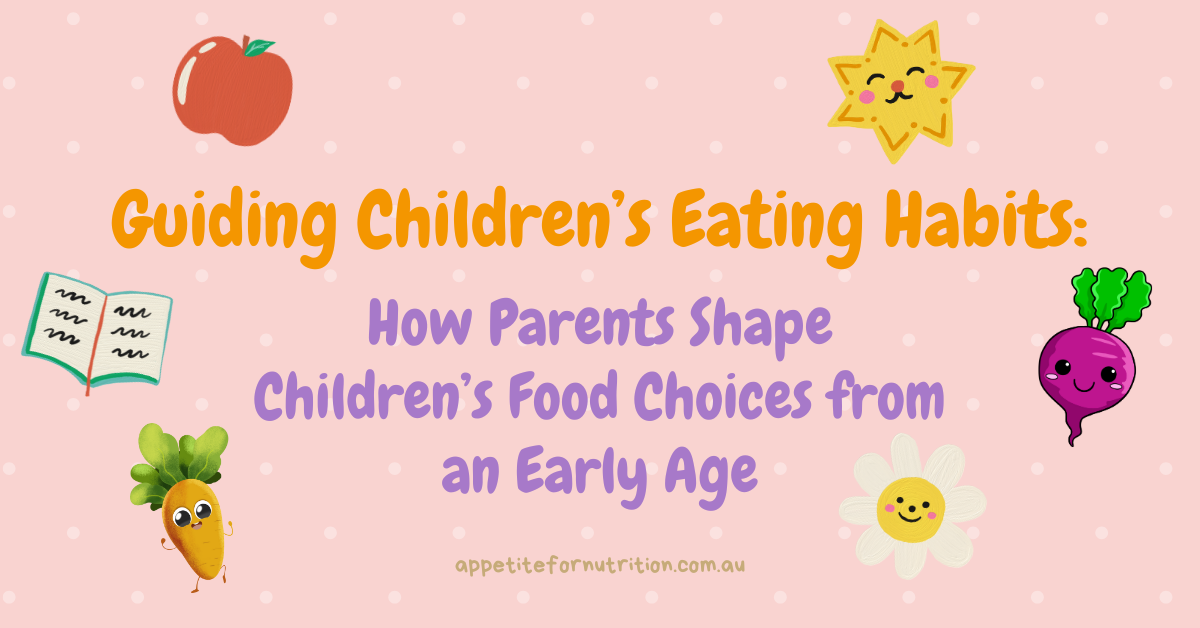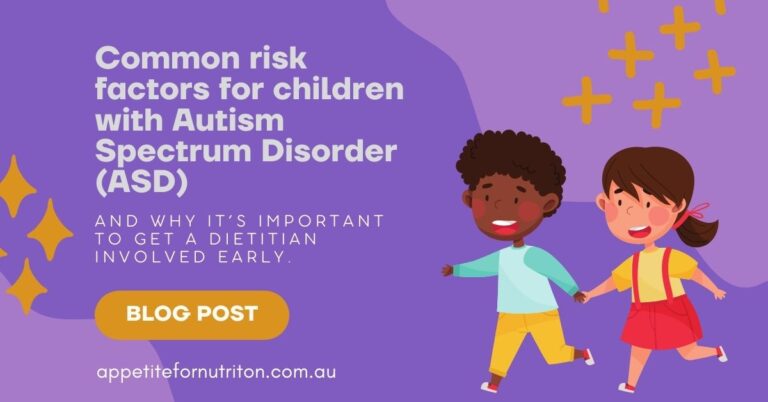
Guiding Children’s Eating Habits: How Parents Shape Children’s Food Choices from an Early Age
Parents play a powerful role in shaping children’s eating habits and their long-term relationship with food. From what foods are offered at home to how mealtimes are structured, everyday choices can influence children’s preferences, confidence around food, and overall health well into adulthood.
The good news is that supporting healthy eating habits in children doesn’t require perfection. Small, consistent actions can make a meaningful difference over time.
Setting the Foundation for Healthy Eating Habits
Be a Positive Role Model
Children learn by observing the adults around them. When parents model balanced eating, enjoy a variety of foods, and avoid labelling foods as “good” or “bad,” children are more likely to develop a positive relationship with food.
Research consistently shows that repeated, pressure-free exposure to foods helps children become more comfortable with new tastes and textures. Evidence-based feeding guidelines recommend offering a variety of foods regularly without forcing intake (The Royal Children’s Hospital).
Create a Supportive Food Environment
The foods available at home play a major role in shaping children’s eating habits. Regularly offering fruits, vegetables, whole grains, and nourishing snacks encourages balanced intake, while neutral access to “sometimes foods” helps prevent food fixation.
For families balancing nutrition with cost, focusing on simple, repeatable meals can help. You may also find our guide to healthy eating on a budget helpful for practical ideas.
Make Mealtimes Positive and Predictable
A calm, screen-free mealtime environment helps children tune into hunger and fullness cues. Family meals also support emotional wellbeing and create opportunities for connection, especially for younger children and neurodivergent kids.
Aim for consistency rather than perfection—shared meals a few times a week can still have a positive impact.
Need personalised support with your child’s eating habits?
Our dietitians provide paediatric dietitian support for families looking to build healthy, stress-free routines around food.
Work with a dietitian
Encouraging Healthy Choices Without Pressure
Involve Children in Food Decisions
Offering children age-appropriate choices—such as selecting vegetables or helping with meal preparation—builds confidence and autonomy. When children feel involved, they are more likely to engage positively with food.
Teach Nutrition in an Age-Appropriate Way
Simple explanations about food and health can be empowering for children. Focus on what foods help the body do, rather than rules or restrictions, to keep conversations supportive and neutral.
Use Positive Reinforcement
Praise curiosity and effort rather than how much a child eats. Avoid using food as a reward or punishment, as this can create emotional associations with eating that persist into adulthood.
Common Pitfalls to Avoid
Pressuring Children to Eat
Encouraging children to finish their plate or take extra bites can override their natural hunger cues. Trusting children to listen to their bodies supports long-term self-regulation.
Over-Restricting Foods
Highly restricting certain foods can increase their appeal. A flexible approach that includes a variety of foods in a neutral way supports balance and enjoyment.
Navigating Common Challenges
Picky Eating
Picky eating is a normal stage of development. Support children by:
Offering new foods alongside familiar favourites
Allowing repeated exposure without pressure
Letting children explore food at their own pace
Progress may be gradual, but consistency is key.
Busy Family Schedules
Time constraints can make meal planning challenging. Simple meals and predictable routines often work best for families.
Need help planning meals your child will actually eat?
Our kid-friendly meal plans are designed by dietitians to support healthy eating habits while keeping family meals realistic and stress-free.
Kid Friendly Meal Plan (4-12years) (7days)
Family Friendly Meal Plan (7days)
When to Seek Professional Support
If you’re concerned about your child’s growth, nutritional intake, or eating behaviours, working with a dietitian can provide reassurance and tailored strategies.
At Appetite for Nutrition, we offer:
General family and paediatric nutrition consults
Feeding specialist dietitian support
Eating disorder-informed care
Appointments are available online and in person across Brisbane, Gold Coast, Melbourne, Shepparton, Bendigo, and Albury-Wodonga.
Get expert guidance for your child’s nutrition
If mealtimes feel stressful or you’re unsure whether your child’s eating habits are on track, support is available.
Book a dietitian appointment
Final Thoughts
Parents have a significant influence on shaping children’s eating habits through role modelling, food availability, and the emotional tone of mealtimes. By creating a supportive environment that respects children’s autonomy and encourages balance, families can foster lifelong healthy relationships with food.
Small changes, practiced consistently, can make a lasting difference.
This blog was last updated December 2025
Frequency Asked Questions
Find quick answers to common questions
Our team of NDIS-registered dietitians helps clients make practical, evidence-based food decisions that fit their goals, lifestyle, and budget.
Start small — introduce new foods alongside familiar favourites, and offer them several times in different forms. Children often need multiple exposures before accepting a new taste or texture. Stay patient and positive, and avoid pressuring them to eat.
Overly restricting foods can make them more appealing. Instead of banning “treat” foods, focus on balance and moderation. Teach children that all foods can fit into a healthy diet when enjoyed mindfully. Your dietitian can help create realistic family meal guidelines.
Keep mealtimes calm and pressure-free. Offer a variety of healthy foods and let children decide what and how much to eat from what’s provided. Involve them in cooking and shopping — this helps increase curiosity and acceptance over time.
Try blending vegetables into meals (like pasta sauces, smoothies, or muffins) or present them in fun, colorful ways. Role model eating vegetables yourself — children are more likely to eat what they see you enjoying.
If your child shows extreme food selectivity, anxiety around eating, weight changes, or nutrient deficiencies, consult a paediatric dietitian or eating disorder dietitian. Early guidance helps establish healthy patterns and reduces mealtime stress for families.
(Learn more or book a consultation with an Appetite for Nutrition dietitian to get started.)



